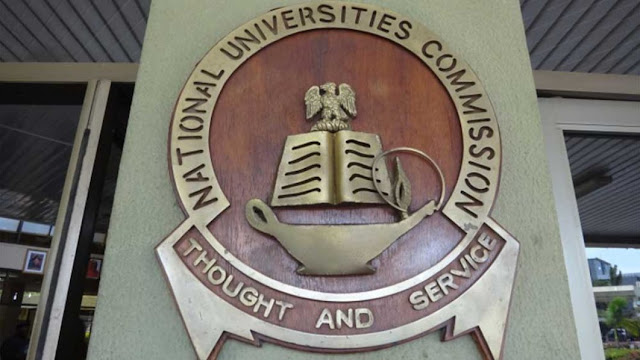Some Nigerian private and public universities are poorly resourced. The consequences of this are dire and manifest in diverse ways. This explains the rising number of academic programmes that are losing accreditation. Parents and concerned authorities who desire graduates with an acceptable level of competency in their areas of specialisation are very worried about this development. ENO-ABASI SUNDAY and UJUNWA ATUEYI, in this report explore some issues that gave rise to over 150 unaccredited academic programmes in Nigerian universities.
Even though some stakeholders knew about the existence of unaccredited academic programmes in Nigerian universities, not many could fathom the number. However, all doubts were recently cleared as the National Universities Commission (NUC) made public, the result of its 2016 accreditation status of academic programmes.
In sum, the report indicates that there are over 150 unaccredited courses in 37 of the country’s 143 universities. And a further analysis of the accreditation status shows that state universities top the chart when it comes to harbouring unaccredited courses, while federal universities follow immediately with 13 of them making the infamous list. Private universities are in the minority as only eight of them are found wanting.
Leading the infamous pack is the University of Abuja. It is home to 15 unaccredited courses, including law. The other schools are University of Benin, University of Jos, University of Nigeria, Nsukka and the University of Calabar.
Some of the medical laboratory science, history and international relations, public health, theatre and media arts, science laboratory technology, architecture, biochemistry, microbiology medicine, pharmacy, law, business management, statistics, electronics and public health.
Since this development came to light, some stakeholders, including parents are bothered by the fact that 150 courses out of the 4, 000 offered in Nigerian universities have questions to answer. Academic programmes that enjoy full accreditation generally have a five-year lifespan within which they are due for re-accreditation. After this period, some courses might lose or retain their status depending on how well they have been managed, while other could be visited with interim accreditation. This happens mostly in situations where facilities on ground, both in human and material terms, have evidently depreciated.
Courses that have been downgraded to interim accreditation usually walk a very tight rope as another spell at that level usually lead to outright loss of accreditation.
According to spokesperson of the NUC, Malam Ibrahim Yakassai, academic programmes are not accredited in perpetuity, but accreditation are reviewed at regular intervals to ensure that they still meet Benchmark Minimum Academic Standards (BMAS).
According to spokesperson of the NUC, Malam Ibrahim Yakassai, academic programmes are not accredited in perpetuity, but accreditation are reviewed at regular intervals to ensure that they still meet Benchmark Minimum Academic Standards (BMAS).
According to him, there is no guarantee that an academic programme that is fully accredited now will still enjoy that status beyond the next five years because changes are constantly taking place in different institutions. So, we must always be on hand to ensure that programmes that enjoy full accreditation are again looked at after five years. Courses that are enjoying interim accreditation have just two years to remedy the situation, if not they, are denied accreditation. And once any programme is denied or has its accreditation withdrawn, we write to the National Youth Service Corps (NYSC), intimating it of the development, and for them to bar graduates of such programmes from taking part in the national service.
According to Yakassai, “For an academic programme to be accredited, it must meet the Benchmark Minimum Academic Standards (BMAS) put in place by the commission. In other words, such programmes must have the right mix of lecturers/faculty members, the right learning environment and adequate teaching aides, which include appropriate books, equipment and the rest.”
Yakassai, who said the NUC was also bothered about the volume of programmes that are without accreditation, added said that notwithstanding, the body is always ready and willing to respond to schools that “move quickly to remedy their deficiencies when they call us back for inspection. Unfortunately, some schools, because of the monetary involvement, don’t get back to us promptly, therefore contributing to lengthening the list of programmes with denied accreditation.
The NUC says accreditation of courses is necessary to ensure “employers and other members of the community that Nigerian graduates of all academic programmes have attained an acceptable level of competency in their areas of specialization.”
The commission says it is also important to certify courses to assure Apart from accrediting programmes for the purposes of ensuring quality assurance, the commission’s spokesperson said doing so also lets the world to know that courses taught in Nigerian varsities meet set international standards just as graduates of the institutions are qualified for employment and further studies.”

No comments:
Post a Comment